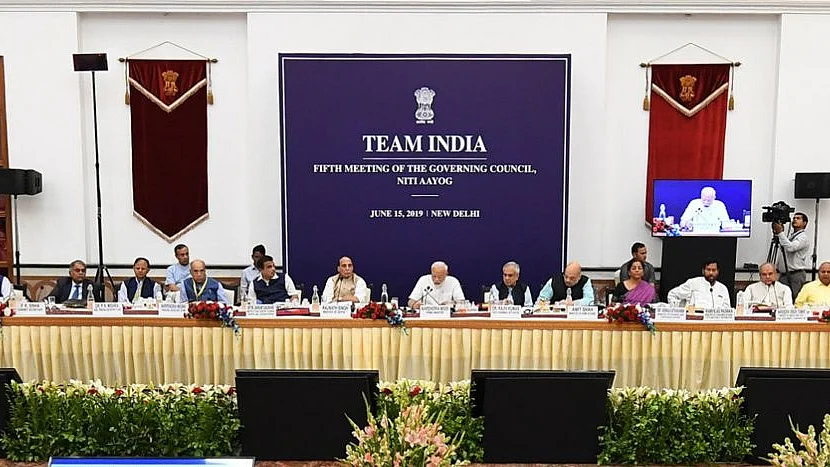Niti Aayog no substitute for Planning Commission: Pinarayi Vijayan
He also underlined the need to ‘re-energise’ the Inter-State Council for discussing matters of importance desired by the chief ministers and by the Union government

The Niti Aayog has failed to play the desired role of a facilitator since its inception in 2015 and there is a “growing realisation” that it can hardly be a substitute for the erstwhile Planning Commission as it has no financial powers, Kerala Chief Minister Pinarayi Vijayan said on Saturday.
“I hope that my colleague Chief Ministers would agree with me that the NITI Aayog in the present form has not played the much-expected role of a facilitator in the last four years. There is growing realisation that it is perhaps not a substitute for the erstwhile Planning Commission,” Vijayan said while addressing the fifth meeting of the Governing Council of Niti Aayog in New Delhi.
He said that Kerala is continuing with the Five Year Plans and implementing many development programmes through its 13th Five Year Plan.
“The adverse impact of the transformation of the Planning Commission to the Niti Aayog is that states like Kerala have lost a source of funding for its state Five Year Plans. After doing away with the Five Year Plans at the national level, the states have lost Gadgil formula grants which they used to get as plan assistance earlier,” he added.
The Chief Minister pointed out that the states now have also to bear A higher cost, that is 40 per cent, instead of the earlier around 25 per cent, in implementing many centrally sponsored schemes.
“This has resulted in the shrinking of the state governments’ fiscal space,” he said.
Raising his doubts over the efficacy of the ‘Aspirational Districts’ programme of the central government, the Kerala chief minister said that one-size-fits-all approach of the centrally sponsored schemes goes against the basic principles of cooperative federalism.
He said that of late, the Centre has been “increasingly spending” on
the subjects in the state list, which has resulted in “centralisation in the design of welfare schemes”.
“This also results in the states losing the much-needed flexibility in implementation of schemes in social and economic sectors. Centralisation of the development schemes restrains the local level initiatives and innovation in delivery of the services,” Vijayan said.
Speaking on the farmers’ issues, he said that “nothing can be farther from reality” than putting farmers in direct contact with “corporate trading entities with the expectation that the income standards of the farmers will improve”.
“In a society with highly unequal bargaining powers and monopoly power that these corporate entities have, the exploitative conditions will worsen in all probability,” he said.
In an apparent dig at the much touted “cooperative federalism” by Prime Minister Narendra Modi, Vijayan said there was a need to “introspect as to how far we are from this ideal”.
“Cooperative federalism is still in conceptual stage and very little structural changes have been made in the last four years to make this work on the ground…the state governments and the local governments should
not be viewed as entities in a pyramidal hierarchical structure below the central government,” he said.
He also underlined the need to “re-energise” the Inter-State Council for discussing matters of importance desired by the chief ministers and by the Union government.
Follow us on: Facebook, Twitter, Google News, Instagram
Join our official telegram channel (@nationalherald) and stay updated with the latest headlines
Published: 15 Jun 2019, 6:56 PM
